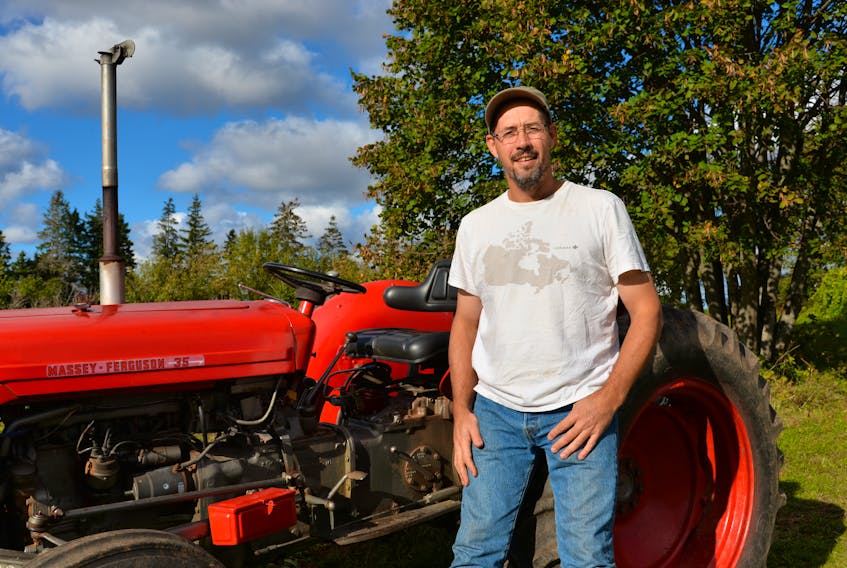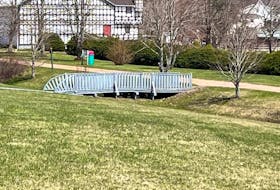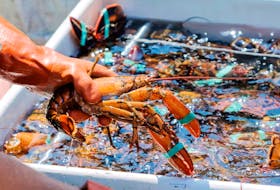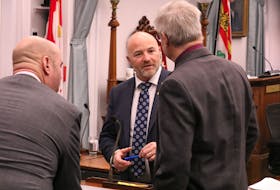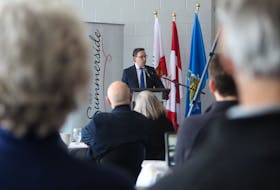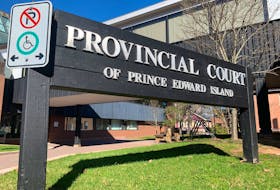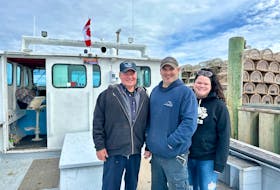GEORGETOWN, P.E.I. - When Quintin Prinsloo looks across his organic farm in Georgetown, he sees a beautiful and peaceful place that reminds him of the farm he grew up on in South Africa.
Prinsloo also notices how quiet the farm has become.
It wasn’t that long ago that the Shelumiel Farm was a hub of activity with animals and 11 children bouncing around.
The farm animals are now gone and a For Sale sign sits at the end of the driveway.
Prinsloo’s wife, Natalie, and most of the kids have moved back to Vancouver.
Prinsloo and two of his adult children will soon follow once the potato harvest is done.
“It was our home. We were so happy on this Island. We’re still happy on this Island,” he said.
The family moved to the farm seven years ago from Vancouver, where they were already “living a rural existence in an urban setting” – homeschooling their children and growing food in a garden.
Prinsloo owns an IT company. It was an occupation he has worked in for 25 years. But it was also one that kept him from home for months at a time.
So, they wanted a change and ended up buying the farm in Georgetown.
They started out small as homesteaders and then grew after a couple of years. The family invested $100,000 and signed up for the province’s Future Farmer Program.
Prinsloo learned how to be an organic farmer. He grew produce familiar to Islanders and produce not so familiar, such as red kuri squash.
But the farm also experienced financial losses.
One setback was when his youngest daughter was born with Down syndrome in Halifax. At that time, he wasn’t able to plant as much as he wanted to and the weeds got ahead of him.
Beyond that, Prinsloo notes that the market on P.E.I. for small organic farmers is hard to break into. As well, even though he could grow organic produce, he had trouble finding buyers.
He recalled growing sweet potatoes. Some sold, but the bulk didn’t. None of the large grocery stores were interested in buying the product.
Prinsloo also reduced prices to be more competitive with grocery stores and sold to wholesalers without a premium.
These outcomes impacted the farm’s ability to be profitable.
“Where the Island lacks for a new farmer coming in is that once you get over a certain production threshold, unless you know someone, your chances of selling your produce is virtually nill.”
“Where the Island lacks for a new farmer coming in is that once you get over a certain production threshold, unless you know someone, your chances of selling your produce is virtually nill.”
To make up the financial losses, Prinsloo returned to his IT job.
But that’s when he ran into tax trouble. He says that working in IT affected his ability to claim past losses on the farm. Instead, Prinsloo was told he had to pay back losses for the previous three years and only claim future losses.
“That was kind of the nail in the coffin,” he explained.
“They were saying that we were making more money off the farm than we were making on the farm. Therefore, we can’t claim those tax deductions that a bona fide farmer gets.”
Prinsloo agreed to have the taxes he’s paid so far this year go against a penalty. But that leaves him in a position where owes taxes for this year and cannot use the money to reinvest back into the farm.
Prinsloo and his accountant are challenging the decision.
“It seems like you’ve changed the rules. We signed up for something. I presented my business plan. The business plan said I expect to lose money ... while I waited to get certified. So, when the government comes and says ‘no, you can’t claim those because you make more money off the farm,’ that was always part of the deal. It just seems counterintuitive.”
Will Proctor, an agriculture development officer with the province, said that participants in the Future Farmer Program can either be full-time or part-time farmers. In order to access the program’s incentives, Proctor said that farmers must have the intention to reach commercial sales status as opposed to farming for personal use with at least $15,000 in gross sales. In terms of taxes, he noted that the Canada Revenue Agency seems to be questioning more files that it audits.
With too many unknowns, the Prinsloos have decided to move on before they are financially ruined.
“At the end of the day, you just realize that you’re going to run out of money before the farm becomes profitable,” said Prinsloo.
He doesn’t want to come across as a complainer. But Prinsloo does want to speak out, especially if other farmers are affected in this manner.
Prinsloo is torn by the decision to leave. But he also realizes he has a family to support.
He hints that if the property doesn’t sell, he may be back next year because he doesn’t want to see all the hard work he put in go to waste.
“We didn’t just farm in P.E.I. We actually planted our hearts here.”

